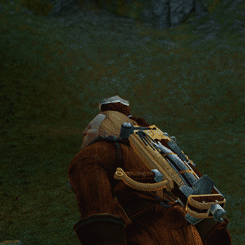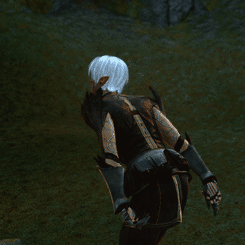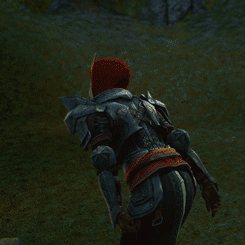Delterius
Arcane
Dragon Age sells less than 5 million copies worldwide. This is not super mainstream. DotA 2 is.No. Those classics were no mainstream because there was no mainstream. We have a gaming culture now.
Dragon Age sells less than 5 million copies worldwide. This is not super mainstream. DotA 2 is.No. Those classics were no mainstream because there was no mainstream. We have a gaming culture now.
Mainstream != profits. Failed blockbuster is still a blockbuster. But the main reason why DAO sold less than 5m copies is that party based tactical RPGs are still just a half way through to become a part of mainstream games in general.Dragon Age sells less than 5 million copies worldwide. This is not super mainstream. DotA 2 is.No. Those classics were no mainstream because there was no mainstream. We have a gaming culture now.
So 10 million copies, that's your definition of mainstream? Why not 5 million? Or 1 million in 1997? Or 10 thousand in the 1970s?Mainstream != profits. Failed blockbuster is still a blockbuster. But the main reason why DAO sold less than 5m copies is that party based tactical RPGs are still just a half way through to become a part of mainstream games in general.Dragon Age sells less than 5 million copies worldwide. This is not super mainstream. DotA 2 is.No. Those classics were no mainstream because there was no mainstream. We have a gaming culture now.
What the fuck is thisBIOWARE




No. In 1998 BW sold 3m copies of BG. How much would game like BG sold today and why?So 10 million copies, that's your definition of mainstream? Why not 5 million? Or 1 million in 1997? Or 10 thousand in the 1970s?Mainstream != profits. Failed blockbuster is still a blockbuster. But the main reason why DAO sold less than 5m copies is that party based tactical RPGs are still just a half way through to become a part of mainstream games in general.Dragon Age sells less than 5 million copies worldwide. This is not super mainstream. DotA 2 is.No. Those classics were no mainstream because there was no mainstream. We have a gaming culture now.
Bioware, obviously. Says so right in the bolded text above the images.What the fuck is thisBIOWARE




DA:O has sold more than 5 million copies.But the main reason why DAO sold less than 5m copies is that party based tactical RPGs are still just a half way through to become a part of mainstream games in general.
That's another issue entirely. Wether or not a game strictly like BG can pull similar numbers is different to claiming that there was no mainstream of gaming 10 years ago because the numbers were smaller.No. In 1998 BW sold 3m copies of BG. How much would game like BG sold today and why?So 10 million copies, that's your definition of mainstream? Why not 5 million? Or 1 million in 1997? Or 10 thousand in the 1970s?Mainstream != profits. Failed blockbuster is still a blockbuster. But the main reason why DAO sold less than 5m copies is that party based tactical RPGs are still just a half way through to become a part of mainstream games in general.Dragon Age sells less than 5 million copies worldwide. This is not super mainstream. DotA 2 is.No. Those classics were no mainstream because there was no mainstream. We have a gaming culture now.
GTA sold 20m copies. If there was a clone of GTA selling 1m, would you not call it mainstream?
When I brought 5 millions up I meant on the weeks of release, meaning strictly at its prime. Long term even Planescape can pull a few milion.DA:O has sold more than 5 million copies.But the main reason why DAO sold less than 5m copies is that party based tactical RPGs are still just a half way through to become a part of mainstream games in general.
According to vgchartz 4.5 million physical copies have been sold to date. Add digitial sales on top of that.
Well, if you're looking for the source, it's this. Some tumblerina, gif afficianado, hardcore bioware fan, author of such ~*masterpices*~ as:What the fuck is thisBIOWARE




No. Those classics were no mainstream because there was no mainstream. We have a gaming culture now. Back then, the culture was just emerging, so products of that future culture couldn't be defined. Only when there's established culture can we talk about something common, because we have means to analyze it. RPGCodex as an idea was only possible because mentioned culture was taking shape. Codex is not against evolution (its members would be dumb then), but against decline. "Something" not established can't decline.Oh God, are you for real?! Okay. First this: http://en.wikipedia.org/wiki/Mainstream Are you done reading? Great. Now look up the era of Black Isle publishing Torment and Fallout. Now compare it to present state of Gaming Industry. See the difference? You should because it's pretty fucking big... By the very definition of mainstream, there's none when new (sub)culture emerges. So again, I'm not talking about period of time (you still are, applying today's standards on era, which was abolutely unique in every aspect), but about mainstream category. In mainstream world, those games would never happened. Nobody played Fallout and Torment...
Just look at new Torment - see how it's funded, developed, to whom is it marketed and what are they trying to achieve with it...
Actually it is you who is applying today's standards on a past era.
Fallout, Baldur's Gate and Planescape: Torment were all the cutting edge and the mainstream of their time. The same can be said about Wizadry and Ultima a decade prior. All of these series were profitable and all of them were played by a sizable portion of their time's gaming community. That Baldur's Gate grew to become the 'classic' that people herald it to be is History.
Wizadry, Isometric Fallout and Torment, each became part of a strong and cohesive, if small and niche genre. Ultimate would still live on further as an MMO and its greatest entries, IV, VII and Underworld, influenced countless of the greatest franchises we have today. The same can be said about Wizadry, which built a legacy across the pacific. And everyone and their mother cites Planescape Torment as a standard for excellence in video game writing. If anything, the past few years have shown, is that the legacy built by these games is no less than that of Baldur's Gate.
In light of that we can't stop at the numbers that well marketed and funded games from EA can (and absolutely MUST) pull and say 'well, that's the mainstream gaming, certain criticism doesn't apply'. I do think that Dragon Age is probably above average when it comes to writing in AAA gaming in general but that's no excuse for unholy things like Merril.
By today's standards, BG falls in certain category. That category is now considered niche. That category was nonexistent back then. Therefore, when I'm not talking about period of time, I meant era where statements like "Bioware is still above average by mainstream standards." doesn't make any sense. The same waythis statement by Athelas is nonsensical: "They were mainstream games that were profitable (Fallout even got several sequels in a short amount of time), just nowhere as much as the smash hit that was Baldur's Gate." So no, I am not aplying today's standards, thanks to existing gaming culture, I do have standards at all.
Baldur's Gate wasn't mainstream because, again, there was no mainstream. Therefore, when Obsidian anounced PoE, those bazillion of Bioware customers didn't give a shit. Why? It was a supposed to be a spiritual successor to a Bioware game, so why Kickstarter? But there was no term like "Bioware game" back then, it's meaningless. There is audience for BG now, there was no audience for BG then, because there were no means hot to define audience for anything at all.You could say the same thing about Pillars of Eternity, which raised less than T:ToN by the way. Does that suddenly mean Baldur's Gate wasn't mainstream?Just look at new Torment - see how it's funded, developed, to whom is it marketed and what are they trying to achieve with it...
So what exactly are we talking about here now? I have no problem discussing this further but i don't see what's your point now. I claim this: 1) There was no mainstream 15 years ago. 2) With Dragon Age, Bioware is still not quite sure what's their target audience. 3) When something doesn't sell much, there might be a lot of factors. But if something sells a lot, it had to impress masses with something.That's another issue entirely. Wether or not a game strictly like BG can pull similar numbers is different to claiming that there was no mainstream of gaming 10 years ago because the numbers were smaller.No. In 1998 BW sold 3m copies of BG. How much would game like BG sold today and why?So 10 million copies, that's your definition of mainstream? Why not 5 million? Or 1 million in 1997? Or 10 thousand in the 1970s?Mainstream != profits. Failed blockbuster is still a blockbuster. But the main reason why DAO sold less than 5m copies is that party based tactical RPGs are still just a half way through to become a part of mainstream games in general.Dragon Age sells less than 5 million copies worldwide. This is not super mainstream. DotA 2 is.No. Those classics were no mainstream because there was no mainstream. We have a gaming culture now.
GTA sold 20m copies. If there was a clone of GTA selling 1m, would you not call it mainstream?
When I brought 5 millions up I meant on the weeks of release, meaning strictly at its prime. Long term even Planescape can pull a few milion.DA:O has sold more than 5 million copies.But the main reason why DAO sold less than 5m copies is that party based tactical RPGs are still just a half way through to become a part of mainstream games in general.
According to vgchartz 4.5 million physical copies have been sold to date. Add digitial sales on top of that.
Two and three are reasonable. One doesn't make sense. Of course there was a mainstream of gaming 15 years ago, one that set up many of the rules for how things work even today. If 20 or 10 years from now a release like GTA routinely sells 100 or 200 million copies, will it be 2014 that didn't have a mainstream of gaming? The very concept of mainstream depends on the universe you are looking at.So what exactly are we talking about here now? I have no problem discussing this further but i don't see what's your point now. I claim this: 1) There was no mainstream 15 years ago. 2) With Dragon Age, Bioware is still not quite sure what's their target audience. 3) When something doesn't sell much, there might be a lot of factors. But if something sells a lot, it had to impress masses with something.
At uni? okay How about among mainstream?No. Those classics were no mainstream because there was no mainstream. We have a gaming culture now. Back then, the culture was just emerging, so products of that future culture couldn't be defined. Only when there's established culture can we talk about something common, because we have means to analyze it. RPGCodex as an idea was only possible because mentioned culture was taking shape. Codex is not against evolution (its members would be dumb then), but against decline. "Something" not established can't decline.Oh God, are you for real?! Okay. First this: http://en.wikipedia.org/wiki/Mainstream Are you done reading? Great. Now look up the era of Black Isle publishing Torment and Fallout. Now compare it to present state of Gaming Industry. See the difference? You should because it's pretty fucking big... By the very definition of mainstream, there's none when new (sub)culture emerges. So again, I'm not talking about period of time (you still are, applying today's standards on era, which was abolutely unique in every aspect), but about mainstream category. In mainstream world, those games would never happened. Nobody played Fallout and Torment...
Just look at new Torment - see how it's funded, developed, to whom is it marketed and what are they trying to achieve with it...
Actually it is you who is applying today's standards on a past era.
Fallout, Baldur's Gate and Planescape: Torment were all the cutting edge and the mainstream of their time. The same can be said about Wizadry and Ultima a decade prior. All of these series were profitable and all of them were played by a sizable portion of their time's gaming community. That Baldur's Gate grew to become the 'classic' that people herald it to be is History.
Wizadry, Isometric Fallout and Torment, each became part of a strong and cohesive, if small and niche genre. Ultimate would still live on further as an MMO and its greatest entries, IV, VII and Underworld, influenced countless of the greatest franchises we have today. The same can be said about Wizadry, which built a legacy across the pacific. And everyone and their mother cites Planescape Torment as a standard for excellence in video game writing. If anything, the past few years have shown, is that the legacy built by these games is no less than that of Baldur's Gate.
In light of that we can't stop at the numbers that well marketed and funded games from EA can (and absolutely MUST) pull and say 'well, that's the mainstream gaming, certain criticism doesn't apply'. I do think that Dragon Age is probably above average when it comes to writing in AAA gaming in general but that's no excuse for unholy things like Merril.
By today's standards, BG falls in certain category. That category is now considered niche. That category was nonexistent back then. Therefore, when I'm not talking about period of time, I meant era where statements like "Bioware is still above average by mainstream standards." doesn't make any sense. The same waythis statement by Athelas is nonsensical: "They were mainstream games that were profitable (Fallout even got several sequels in a short amount of time), just nowhere as much as the smash hit that was Baldur's Gate." So no, I am not aplying today's standards, thanks to existing gaming culture, I do have standards at all.
Baldur's Gate wasn't mainstream because, again, there was no mainstream. Therefore, when Obsidian anounced PoE, those bazillion of Bioware customers didn't give a shit. Why? It was a supposed to be a spiritual successor to a Bioware game, so why Kickstarter? But there was no term like "Bioware game" back then, it's meaningless. There is audience for BG now, there was no audience for BG then, because there were no means hot to define audience for anything at all.You could say the same thing about Pillars of Eternity, which raised less than T:ToN by the way. Does that suddenly mean Baldur's Gate wasn't mainstream?Just look at new Torment - see how it's funded, developed, to whom is it marketed and what are they trying to achieve with it...
Okay, maybe not 'mainstream', but certainly not underground. They had at least the same kind of cultural penetration as pre-major-studio-signing 1980s REM or Janes Addiction - a diehard following, but with no means of breaking out into the mass market. I remember talking BG and PS:T with friends and random tavern acquaintances at uni - most people wouldn't have been into it, but it wasn't hard to find people who were, even in a generalist location like a university tavern.
 Just about anyone today is a gamer...
Just about anyone today is a gamer...According to vgchartz 4.5 million physical copies have been sold to date. Add digitial sales on top of that.
Okay, hopefully I'll answer that by more detailed explanation. In science, there's something called "mainstream" views/theories. That's mainstream among scientists, that's already a niche group of people. Same with grognards for example. The reason why we can speak confidently about mainstream within these kind of groups is because they are very unlikely to change, meaning in a sense of incorporating someone else than another scientist or grognard. The group of scientists won't include white trash. Thus, those groups are basically defined and only in case of defined group (or culture), we can speak about mainstream. But that is not the case with gaming culture. Gaming culture concerns just about anyone now(same as movies/music) - the set of gamers is much much more diverse. As a group, it's defined by that now. But that happened only recently, it was not so 15 years ago (especially with CRPGs). There was no gaming culture back then, we can only speak about some kind of (gaming) subculture arising from entertainment culture. So there was no mainstream in this nonexistent culture because back then it was just an arising subculture and I refuse to speak about mainstream in case of subculture, which will eventually evolve in much more diverse group (creating today's gaming culture). Today, gaming group is defined. Today, BG/Torment/Fallout are within certain categories. Back then, there was no mainstream, because there was no culture called gaming which would be characteristic by consisting of "just about anyone" (hillbillies and scientists rejoice!).Two and three are reasonable. One doesn't make sense. Of course there was a mainstream of gaming 15 years ago, one that set up many of the rules for how things work even today. If 20 or 10 years from now a release like GTA routinely sells 100 or 200 million copies, will it be 2014 that didn't have a mainstream of gaming? The very concept of mainstream depends on the universe you are looking at.So what exactly are we talking about here now? I have no problem discussing this further but i don't see what's your point now. I claim this: 1) There was no mainstream 15 years ago. 2) With Dragon Age, Bioware is still not quite sure what's their target audience. 3) When something doesn't sell much, there might be a lot of factors. But if something sells a lot, it had to impress masses with something.
I guess. *shrug*According to vgchartz 4.5 million physical copies have been sold to date. Add digitial sales on top of that.
Those are not sales numbers. vgcharts uses magical fake made up numbers they pull from their ass. NPD uses actual sales data.
Just FYI
i'm pretty sure they have sold more than 5 million physical and digital units since then.







